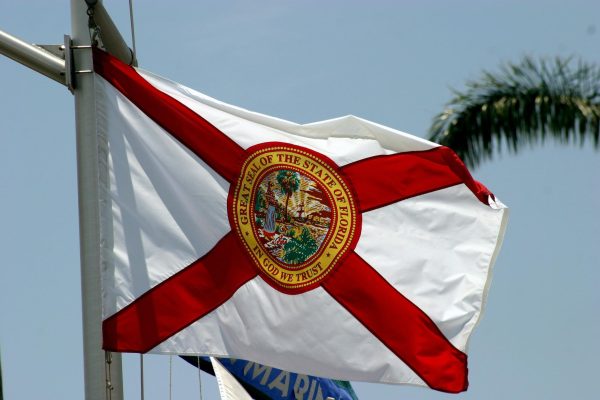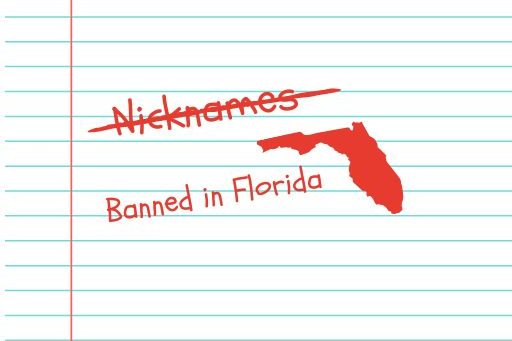How the bill has changed
Right before school began in Collier County, Governor Ronald De Santis signed an amendment to House Bill 1069 that effectively banned the use of nicknames in schools.
House Bill 1069, also known as the “Don’t Say Gay Bill” was a controversial piece of legislation passed by Florida legislators in 2022. The bill originally banned the teaching of subjects involving gender identity and sexuality from kindergarten through third grade. Despite promises that this bill would not be expanded on, the bill had two very large changes made right before the 2023-2024 school year.

The “Don’t Say Gay Bill” requires staff members of schools to call students by their legal names.
The first change prohibits teachers from calling students by anything other than their legal name without explicit consent from the student’s parents. Should a parent want their child to be called something else in school they would have to fill out and sign a Parental Authorization for Deviation from Student’s Legal Name Form.
The other expansion of the bill was extending the prohibition of teaching subjects relating to sexuality and gender identity from kindergarten to 12th grade. Denying teachers the ability to teach anything related to these subjects, this extension of the bill caused confusion over whether or not AP Psychology could even be taught in Florida. Containing a section on the previously mentioned subjects, AP Psychology would have been a banned class in Florida had the commissioner of education not explicitly permitted it in its entirety. All of this is to say that these amendments to the bill have placed several more restrictions on high schools in Florida with one key change preventing the use of unapproved nicknames.
The real effects on schools
As far as how this bill will affect schooling for the rest of the year, teachers seem to think that it’s too early to tell.

Florida is notorious for its ‘anti woke’ legislation, causing distress for many students and teachers alike.
Marco Island Academy’s Ms. Mahan seems to think that most of the problems around the bill revolved around a lack of clarity at the beginning of the school year. When asked if she thought the change was positive or negative she responded, “I think the intent is meant to keep parents aware of or in control of how their children want to be represented in school/class. I cannot say it’s positive or negative as we’re still really in the beginning of the school year and so far things seem fine. If I have to commit, I would say I’m neutral about it so far. Once I understood it better, it seemed a minimal intrusion to our school procedure. It was more problematic when some of the details weren’t clear.”
Ms. Mahan teaches History and Psychology for MIA and hasn’t had any issues with the amendment saying, “This policy, up to this point, has not affected classroom or work. As of right now, it is more of an administrative/parent concern that does not directly get in the way of teaching classroom material or concepts.”
As for how this bill has affected the students at MIA, they seem to feel the same way. When asked to describe the changes this policy has caused in the classroom, MIA senior Grant Tirrell said “To my knowledge, anybody who goes by a nickname like ‘Daniel’ to ‘Dan’ or ‘Thomas’ to ‘Tom’ is still being called that in many cases, so in that regard I would have to say that ‘banning nicknames’ hasn’t affected my classes, I haven’t noticed a change in atmosphere, I don’t find it harder to connect with classmates, and it hasn’t affected my ability to focus on schoolwork”.
Students and staff at Marco Island agree that the change hasn’t had much of an impact on day-to-day life at school. Seeing as this bill has been expanded recently there’s no guarantee that it couldn’t be amended again but for now, schooling should be relatively the same in Collier County.
















Sophia Lowrie • Sep 3, 2023 at 8:35 AM
go Leo!!